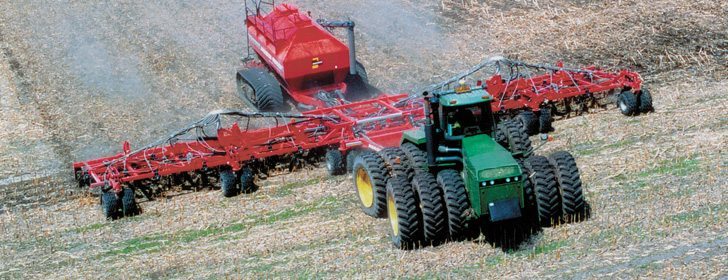The holiday season typically results in a time of reflection, which was certainly the case as we looked back at the year in agriculture.
It was a busy one on several fronts, but of particular interest to the Saskatchewan Soil Conservation Association is the provincial government’s continued effort to develop a greenhouse gas offset market.
This effort follows the passing of the Management and Reduction of Greenhouse Gases and Adaptation to Climate Change Act in May 2010.
Although recently overshadowed by the economic crisis gripping the world, climate change continues to be a topic of interest for Canadians.
Read Also

Farmer ownership cannot be seen as a guarantee for success
It’s a powerful movement when people band together to form co-ops and credit unions, but member ownership is no guarantee of success.
What most people don’t realize is that farmers in Western Canada can be part of the solution to this global problem.
The SSCA welcomes the inclusion of greenhouse gas offsets generated from biological sequestration in these ongoing discussions.
Good soil management practices, including the reduction of summerfallow and tillage intensity, removes carbon dioxide from the atmosphere and stores it in agricultural soil as carbon. Farmers have been adopting reduced tillage for years for myriad reasons. Reduced greenhouse gas emissions are another benefit of improved soil practices.
The result of these improved practices is that net annual emissions from agriculture in Saskatchewan have been negative between 1990 and 2008. Agriculture reduced and removed more CO2 than it emitted in each of those years. The adoption of improved soil management practices has continued over the past decade, putting even more CO2 “in the bank.” Agriculture in Saskatchewan has been and is doing its part to address climate change.
Continued encouragement of good farm practices requires development of a market that sees farmers receive value from their greenhouse gas emissions reductions and removals that result from the management decisions they make.
Farmers make those management decisions for a host of reasons, but one of the benefits should be a financial incentive for helping to address climate change.
The SSCA wants to ensure that the contributions Saskatchewan’s farmers have made to greenhouse gas reduction are valued.
The proposed approach includes multiple discounts to generally accepted carbon sequestration rates for adoption of reduced tillage practices. These discounts reduce the return to farmers by up to 70 percent and result in returns of less than $1 per acre. This is not acceptable.
Farmers are making a contribution and those efforts need to be recognized and rewarded.
The Saskatchewan government is on the right path by addressing the climate change issue. It is doing this partly through the use of offsets, particularly biologically based offsets that provide multiple benefits.
However, if the government wants farmers to participate in the offset market, then more of the value associated with that participation must be returned to them.
We hope you think of the benefits Saskatchewan’s farmers provide when you consider climate change issues or have an opportunity to talk to your elected officials about Saskatchewan’s approach.
Farmers provide more than food, feed, and fibre — and more can be done to encourage good practices.















